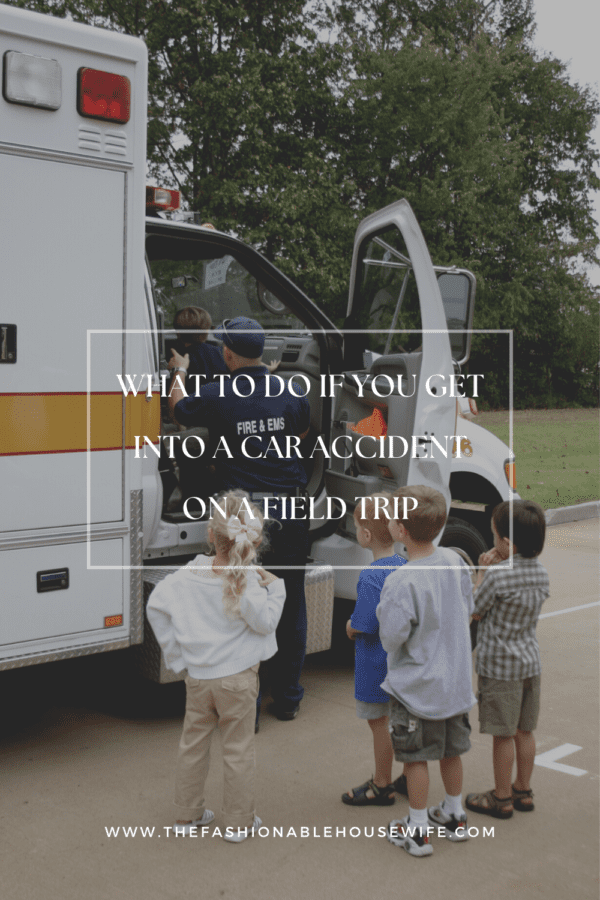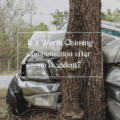
If you are a parent of a young child, exploring new places, learning from firsthand experiences, and creating unforgettable memories are all part of the adventure of a field trip. You’ll never forget the moments with your child going on trips such as outdoor education and the water park.
However, just like any journey, accidents can happen unexpectedly. Finding yourself in a car accident when driving to a destination during a field trip can be a distressing situation, but knowing the right steps to take can help ensure everyone’s safety and well-being. Below are the necessary steps to take when in the unexpected situation of a car accident on a field trip.
1. Prioritize Safety Of The Passengers
The safety of all passengers should be your immediate concern. Ensure that everyone is okay and assess the extent of injuries. If anyone is seriously injured, call emergency services for immediate medical assistance. Even if injuries seem minor, it’s better to stay on the side of caution and seek medical attention.
2. Notify The Authorities
If the accident resulted in injuries, significant damage to vehicles, or other property damage, contact the local police or law enforcement. They will assess the scene, gather information, and create an official report of the accident. This report can be essential for insurance claims and legal purposes.
3. Exchange Information With The Other Driver Involved
Exchange contact, insurance, and vehicle information with the other driver involved in the accident. If there were witnesses, obtain their contact information as well.
Document the details of the accident, including the date, time, location, weather conditions, and any contributing factors. Having accurate information will assist in resolving insurance claims later on.
4. Notify The Field Trip Supervisors
Inform the trip organizers, teachers, or chaperones about the accident as soon as possible. They need to be aware of the situation and coordinate any necessary actions, such as contacting parents or arranging for alternative transportation, as clear communication with trip leaders will ensure a coordinated response.
5. Document the Scene
If it is safe to do so, take photographs or videos of the accident scene, the vehicles involved, and any visible damages. These visual records can serve as important evidence for insurance claims or legal purposes. Be sure to capture the positioning of the vehicles and any relevant road conditions.
6. Seek Medical Attention For Yourself And Passengers
Even if injuries seem minor at first, it’s crucial to seek medical attention for a thorough evaluation. Some injuries might not be immediately apparent, and early medical intervention can prevent complications down the line.
According to the Bonilla Law Firm, medical bills can quickly pile up after a car wreck occurs. In addition, there are some instances where emergency surgeries and operations are needed to help the victim of an accident.
Additionally, obtaining medical documentation of injuries is important for insurance claims.
7. Contact Parents or Guardians
Notify the parents or guardians of the students involved in the accident. Provide them with accurate information about the situation and the steps being taken to ensure the safety and well-being of their children. Maintaining open communication with parents will help them feel informed and reassured.
8. Gather All Information Related To The Accident
Keep a record of all conversations, interactions, and documents related to the accident. This includes insurance details, police reports, medical records, and any communication with school officials, law enforcement, or insurance companies. Keeping organized records will assist in addressing any legal or insurance matters that may arise.
9. Follow School Protocol
Schools often have specific protocols in place for incidents like car accidents during field trips. Cooperate with school officials and follow their guidance on reporting the accident, completing necessary paperwork, and seeking any required medical attention. Adhering to school protocols will ensure a unified response to the situation.
10. Contact Legal Representation
If the accident was severe or resulted in injuries, you may want to consult with a legal professional. An attorney can provide guidance on potential legal actions, insurance claims, and protecting your rights. If negligence is a factor in the accident, legal representation can help navigate the complexities of the situation. Additionally, if you’re uncertain about your legal options or need assistance in understanding your rights, reaching out to a car accident attorney can provide clarity and support. For more information here on how a car accident attorney can assist you in seeking the compensation you deserve and ensuring your rights are upheld, don’t hesitate to seek professional legal advice.
Safety On The Road Should Always Be A Priority
While a car accident during a field trip can be unsettling, the well-being of all individuals involved should always be the top priority.
By following these steps and working together with trip organizers, school officials, and relevant authorities, you can navigate the situation with greater confidence, ensuring that everyone receives the necessary care and support.
As you address the aftermath of the accident, remember that safety and communication are your best allies in managing unexpected challenges while on a field trip.








